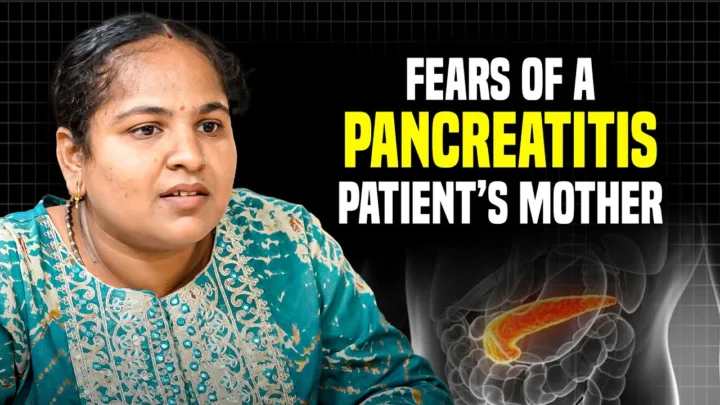In a candid conversation with clinical nutritionist Dr. Meetu Rastogi, the deep-seated issues surrounding women’s health and nutrition were brought to light. While diet is a popular topic today, a woman’s unique challenges, from emotional stress to societal expectations, are often overlooked. This article explores how a woman’s health is far more complex than a simple diet plan, delving into the core principles of nutrition, the mind-body connection, and the importance of self-prioritization.
Back to Basics: The Core of a Balanced Diet
Many people, influenced by modern trends, seek quick fixes for their health issues. They turn to fad diets, supplements, and extreme fasting methods, believing these are shortcuts to well-being. However, as Meetu and her colleagues teach, a solid foundation is built on the basics. Health is not about finding a magic pill; it’s about a consistent, balanced approach to food and lifestyle.
The key to good health lies in embracing a balanced diet composed of five essential food groups: cereals, pulses, fruits, vegetables, and fats, along with adequate water and fiber. The Indian thali, a traditional meal, serves as a perfect example of this balance.
- Proteins: Found in pulses, milk and milk products (paneer, curd), and meat. Proteins are the building blocks of the body, crucial for muscle repair, growth, and overall strength.
- Carbohydrates: Sourced from cereals like millets, wheat, oats, and rice. Carbs are the body’s primary fuel source, providing energy for daily activities. A low-carb approach can be detrimental, forcing the body to use protein for energy, which in turn leads to muscle loss and compromised immunity.
- Fats: Present in ghee, oils, and nuts. Fats are a concentrated source of energy and are essential for the absorption of fat-soluble vitamins (A, D, E, K).
- Vitamins & Minerals: Abundantly found in fresh fruits and vegetables. These micronutrients are vital for boosting immunity and maintaining overall bodily function.
- Fiber & Water: Found in salads, vegetables, and whole grains, fiber aids in digestion and bodily regulation. Proper hydration is critical, as a significant portion of our body is water.
The Caregiver’s Paradox: The Double Burden on Women
A recurring theme in the discussion was the paradoxical role of a woman as a caregiver. When a male family member falls ill, a woman will go to any length to ensure his health—scheduling appointments, managing medication, and preparing special meals—often at the expense of her own well-being. Yet, when a woman is sick, she is expected to continue her duties without complaint. This self-neglect leads to a “double burnout” and is a major contributor to common health issues like anemia, PCOS, migraines, and chronic fatigue.
Beyond Looks: Physical Indicators of Poor Health
Societal pressure often forces women to focus on appearance rather than inner health. However, the body provides clear signals when something is wrong. These physical indicators include:
- Chronic fatigue and lethargy
- Brittle nails and hair loss
- Persistent acne or dull skin
- Digestive issues like bloating, acidity, and constipation
- Numbness or tingling sensations in hands and feet (indicating B12 deficiency)
- Chronic aches, such as lower back pain (a sign of micronutrient deficiency)
True health is not measured by the number on a scale or a specific BMI but by one’s energy, vitality, and overall feeling of well-being.
The Mind-Body Connection: The Impact of Stress
Many women turn to food, especially sugary snacks, to cope with emotional stress. This habit, known as emotional eating, is often rooted in unexpressed feelings and can lead to a vicious cycle of guilt and poor health. From an Ayurvedic perspective, this is linked to gut imbalances and an aggravated Pitta dosha. The conversation highlights that the solution isn’t to fight the cravings but to understand their root cause. Once gut health is restored and stress is managed, these cravings naturally subside.
Taking Control: The Call to Action
The most powerful message of the discussion is a call to action for every woman: prioritize yourself. A woman’s health is her own responsibility, and waiting for someone else to fix it is a path to disappointment. The speakers emphasize that women must stop being the “dustbin”—eating leftover food, neglecting their meals, and depriving themselves of rest.
- Eat with awareness: Stop eating on the run. Eat meals at a fixed time and in a proper setting.
- Embrace exercise: Engage in physical activity, not to change your appearance, but to build strength and vitality. Activities like walking and yoga are vital for building a strong foundation.
- Rest and Recuperate: Acknowledge the importance of sleep. Women are often sleep-deprived, which weakens the body’s natural healing processes.
Self-care is not selfish; it is a fundamental act of self-worth. By investing in their own health, women not only transform their own lives but also become a source of strength and inspiration for their families. Their health is the foundation upon which the well-being of the entire household is built.






